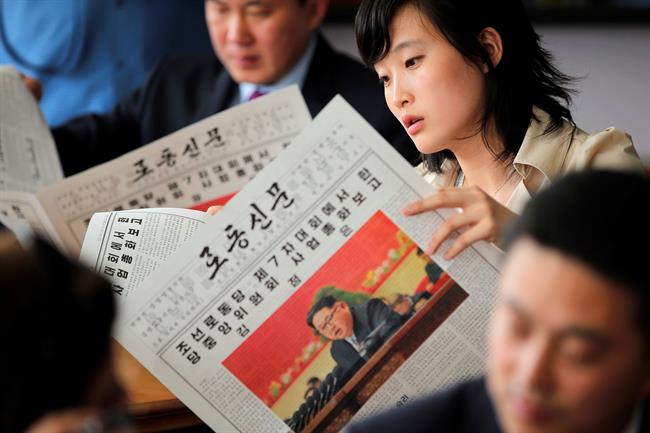- Only three stocks were able to finish higher on Monday
- Unemployment figures were the main macroeconomic data for the week

The Ibex 35 is struggling to lift its head. On Monday it fell below the 10,300 point level amid ongoing political tension regarding North Korea. The index was down 0.8% to 10,246 points. The blue chips ensured the Ibex was in red numbers at the start of the week.
- 12.518,500
- -5,64%
However, Banco Sabadell was that which registered the biggest fall on the day, as it dropped 2.78% to 1.81 euros. It was followed by IAG which was down 2.7%. With losses less than 2% was Caixabank (-1.3%). In relation to the heavyweights, Telefonica was down 1.14%, and fell below 9 euros, although Bolsamanía analyst José María Rodríguez said there was little need to worry until it nears 8.8 euros.
Inditex also struggled on Monday. The textile company fell 0.96% to 31.5 euros. With the losses it led in the previous sessions, Inditex has suffered in the exchange in recent times. Analysts have cut their valuations on the stock, such as Berenberg which lowered it by 5% to 35 euros.
The two big banks of the exchange closed with significant losses also. BBVA was down 0.85%, while Banco Santander closed 0.68% lower.
On the other hand, only two stocks were able to end the day in the black. Acerinox gained 0.74%, and ACS by 0.17%. Merlin closed flat on 11.6 euros.
KOREA TENSIONS
North Korea increased its nuclear threat to the maximum with the latest military test carried out on Sunday with a hydrogen bomb. The Pyongyang regime, after launching another missile near Japan, has caused alarm with its latest strikes.
With all this, the rest of the European markets closed in the red, with losses of 0.3% on average. The CAC 40 was down 0.35%, the FTSE 100 by 0.32% and the DAX 30 0.27%. Asian stocks seem largely unaffected by the tension as they closed lower but not by much. Wall Street is closed on Monday for a public holiday.
Outside of equity markets, gold returned to profits on Monday as the safe haven market thrived among the North Korean news. An ounce of gold as now at highs of more than one year, rising more than 0.6% in the day and almost 3% in the last week.
On the other hand, the euro appears to be ignoring the tension and continues its rise against the dollar. At the European close it was up 0.46% to $1.1917.
In the macroeconomic plain, unemployment figures were announced for Spain. The number registered in the employment office rose to 46,400 in comparison with the previous month. Deutsche Bank also increased its forecast for Spanish economic growth to 3% in 2017 and 2.5% in 2018.
TECHNICAL ANALYSIS
Bolsamanía analyst José María Rodríguez says that once again geopolitical tensions over North Korea after the launch of another missile on Sunday are having an impact on the index, which began the week leaving behind a lower gap of 10,325 points.
“Saying that we remain trapped in the lower channel which we have been in for the last four months, and the possibility exists to test once again the base of the channel, now at 10,130 points,” the expert said.
“The graphs drawn by the indices last week invite the possibility of continued losses, but it’s true that while the these tensions remain it’s unlikely that European indices such as the Ibex 35 will be able to thrive.”

